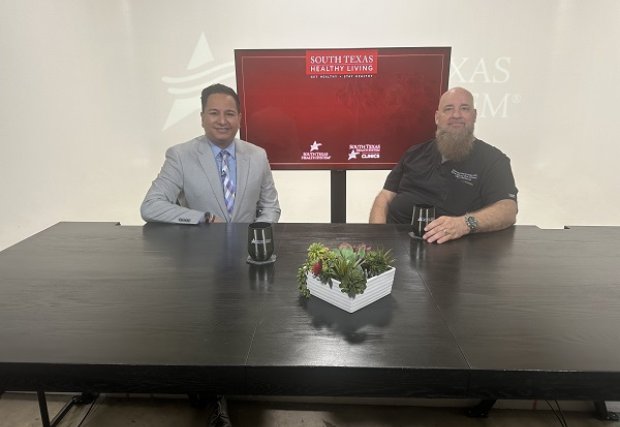South Texas Health System and STHS Clinics To Provide Important Education on Traumatic Brain Injuries and Their Long-Term Effects on Health in the Latest Episode of Their “South Texas Healthy Living” TV Program

The central organ of the nervous system, the brain plays a critical role in several aspects of human life. It controls every process that regulates the body, including thought, memory, emotion, touch, motor skills, vision, breathing, temperature and hunger.
Unfortunately, a traumatic brain injury (TBI) – which refers to damage to the brain triggered by an external physical force like a car accident, fall or sports injury, disrupts normal brain function, causing damage like bruising, bleeding and nerve fiber tearing – can lead to temporary or long-term problems with thinking, understanding, movement, communication and behavior.
Each year, about 2.5 million individuals experience a TBI, per the Centers for Disease Control and Prevention, with about 80,000 leading to permanent disability and 50,000 resulting in death.
Falls, the leading cause of traumatic brain injuries make up about 28% of cases, per the CDC, followed closely by motor vehicle accidents, which make up 20% of cases.
“Some traumatic brain injuries are mild, with symptoms waning over time with proper medical attention,” says Mike Menowsky, MF, FACEP, an emergency medicine physician with South Texas Health System McAllen. “Others may be more severe and result in permanent disability. In some instances, serious TBIs may require post-injury and lifelong rehabilitation.”
In addition to understanding the signs and symptoms of a traumatic brain injury like a loss of consciousness, confusion, headache with nausea or vomiting and a change in mental status, it’s important to seek early and appropriate treatment to minimize secondary brain damage, potentially prevent long-term complications and improve overall patient outcomes.
“While you can usually manage mild TBIs – known as concussions – at home, they still require proper medical evaluation,” says Menowsky, who serves as the Associate Program Director of the STHS GME Consortium’s Emergency Medicine Residency Program. “More severe TBIs may require surgery or medications to manage symptoms and prevent potentially fatal complications.”
Since traumatic brain injuries can lead to severe, often permanent disabilities that impact an individual’s ability to think, move and function, it’s important to take steps to prevent them, especially since TBIs can happen at any time due to a sudden impact to the head.
To help educate Rio Grande Valley residents on the dangers of TBIs this Traumatic Brain Injury Month, South Texas Health System and STHS Clinics devoted the latest episode of their monthly “South Texas Healthy Living” television program to the life-threatening medical condition, which is more common in older adults, who have a higher risk of TBI-related deaths and hospitalizations compared to younger individuals.
Catch up on South Texas Healthy Living
To watch previous episodes of “South Texas Healthy Living” and the system’s South Texas Health Updates, one minute videos offering education on various health issues, visit South Texas Health System’s Medical Minute page on ValleyCentral.com.
Broadcast live on Sunday, March 30, 2025, at 9:00 a.m. on KVEO-TV NBC 23, the program featured a sit-down interview with Dr. Menowsky on the risk factors associated with TBIs, the warning signs and symptoms of a brain injury and the treatment protocols for mild to severe TBIs.
Additionally, STHS System Director of Marketing and Public Relations and “South Texas Healthy Living” host Tom Castañeda sat down with Alicia Cruz, a 38-year-old McAllen mother who was diagnosed with a TBI in 2023 after being involved in a motor vehicle accident, to find out how the brain injury has impacted her life and her advice for those who may not seek prompt medical evaluation after experiencing head trauma.
The program also featured a special cooking segment led by Patrick Woodin, South Texas Health System McAllen’s Director of Dietary and Nutrition Services, a demonstration of essential fall-prevention exercises with a member of the STHS Edinburg rehabilitation services department, and important strategies to prevent traumatic brain injuries.
“Education about the dangers of traumatic brain injuries is crucial because it empowers individuals to recognize the causes and risk factors associated with head trauma, recognize the warning signs and symptoms and, ultimately, seek medical attention if they suspect they or someone around them has experienced a TBI,” says Castañeda. “But that’s not all… Along with providing important education, this latest episode of ‘South Texas Healthy Living’ will also highlight strategies to avert TBIs. Unlike most neurological disorders, most head injuries can be prevented, so taking precautions like wearing a seat belt in the car or a helmet when riding a bike or playing sports like football can make a world of difference in preventing head trauma. Additionally, there are simple exercises you can do from the comfort of your home to strengthen muscles and improve balance to maintain stability and prevent falls, especially in seniors. This episode is all about helping you get healthy and stay healthy!”
